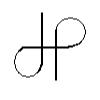Search the Community
Showing results for tags 'Leadership'.
Found 2 results
-
Chapter 11: 三十辐共一毂,当其无,有车之用。埏埴以为器,当其无,有器之用。凿户牖以为室,当其无,有室之用。故有之以为利,无之以为用。 Chapter subtitle: It is leadership that matters, not authority [MP11a]Thirty spokes sink into a hub that has a hollow center to form an empty wheel hub where the axle sits right through the hub center that enables a carriage to carry heavy loads. (三十辐共一毂,当其无,有车之用) [MP11b]Pottery formed from kneading clay into shape like a hollow vessel allows it to hold water or food items. (埏埴以为器,当其无,有器之用) [MP11c]Building a house with doors and windows and leaving the majority of the inner space within the house empty produces an excellent place for residence. (凿户牖以为室,当其无,有室之用) [MP11d]Thence, things that provide people with useful functions somewhat have to preserve a hollow body in order for it to produce its maximum usefulness. (author’ supplementation) [MP12a]Authority (有之) comes with power (author’s supplementation), henceforth, has its advantages (以为利). [MP12b]If you are not given the authority (无之), you can still lead by making use of the principles of leadership (以为用). Annotations: [MP12c]No matter how you look at leadership, though you cannot feel it, its existence is real. Akin to a bowl, it is the unfilled volume of space that gives it the capacity to hold food or water. The same goes with a leader. It is his leadership ability that enables him to lead his people. This is in contrast to what everyone else seems to assume that his leadership is derived from the power of the office that gives him the authority to lead others. [MP12d]On the surface, a person not in a leadership position is obviously not given the authority to lead. However, in reality, whether you hold the designation or authority to lead or not, certainly, you are still able to lead, as long as you make use of the leadership principles. Which means, you are leading through your sheer leadership ability, and do not have to depend on authority. Comments: The real intention of this chapter is to tell us, do not just look at the surface of a person if he carries the authority or not. Even though at this juncture he is not preordained with the authority to lead, it does not mean that he is not able to lead others. This is a very big mistake! In fact, the most crucial element that makes a true leader is his leadership ability! And not, his designation! It clearly points out the reverse. When a person does not know how to lead others, he craves for authority. He fights fervently for the designated position in order to gain the authority that goes with it! Yet, in the end, he bungled up as a false leader who went against all the principles of true leadership. Notes: MP11a to MP11d are quite straight forward translation. The biggest problem with the translation in this chapter is the character 之, means that. What is “that” which Lao Zi was referring to? This is truly mind-boggling. Thinking hard why Lao Zi wrote three examples that implied the intangible part of a wheel hub, empty space of a piece of bowl and the empty space of a house, the author concluded that he was referring to authority as the tangible form, while leadership qualities is essentially the most important element that differentiate between a competent leader and an inept person who is occupying a leadership position. MP12c and MP12d are two supplementary pointers that assist in further the understanding of the difference between authority and leadership. They are not in the original DDJ texts. Comments are the author’s elucidation.
- 1 reply
-
- 1
-

-
- leadership
- authority
- (and 6 more)
-
The Master of the Hidden Storehouse is a very easily comprehended work attributed to Keng Sang-tzu, a disciple of the old scholar, and is a classical treatment of the taoist philosophy with emphasis on leadership and governance. I found this little gem buried in the back half of a book called Thunder in the sky, an english language translation by Thomas Cleary which includes two texts: Master of Demon Valley, and Master of the Hidden Storehouse. The book is published by Shambhala, isbn# 1-57062-660-x (in case anyone gets bored with the pace that I lay it out on this thread and wants to get a copy for themselves). After reading this book, I must conclude that it is essential reading for anyone who wishes to be effective in a leadership role from the point of presiding over a nation, a state, a province, a villiage, a neighborhood, a house, or themselves. The lack of understanding of the way when it comes to governance in our world's leaders is shocking, but not unexpected, as the persons most likely to seek public office are, by their natures, the ones least likely to be competant to fill these roles. By way of overview, there are nine segments in this text: Preserving the way intact, Applying the way, The way of government, The way of leadership, The way of administrators, The way of the wise, The way of education, The way of agriculture, and The way of war. Get your ink and brushes ready: you will want a copy of this text preserved for future generations.
- 2 replies
-
- 5
-

-
- Tao
- Leadership
-
(and 6 more)
Tagged with:


